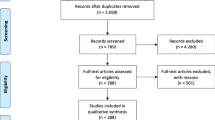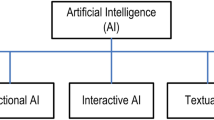Abstract
Autonomous intelligent systems are starting to influence clinical practice, as ways to both readily exploit experts’ knowledge when contextual conditions demand so, and harness the overwhelming amount of patient related data currently at clinicians’ disposal. However, these two approaches are rarely synergistically exploited, and tend to be used without integration. In this paper, we follow recent efforts reported in the literature regarding integration of BDI agency with machine learning based Cognitive Services, by proposing an integration architecture, and by validating such architecture in the complex domain of trauma management. In particular, we show that augmentation of a BDI agent, endowed with predefined plans encoding experts’ knowledge, with a Cognitive Service, trained on past observed data, can enhance trauma management by reducing over triage episodes.





Similar content being viewed by others
References
Isern, D., Sánchez, D., and Moreno, A. Agents applied in health care: A review. International Journal of Medical Informatics 79, 3 (2010), 145–166.
Nov, O., Aphinyanaphongs, Y., Lui, Y. W., Mann, D., Porfiri, M., Riedl, M., Rizzo, J.-R., and Wiesenfeld, B. The transformation of patient-clinician relationships with ai-based medical advice. Commun. ACM 64, 3 (2021), 46–48.
Tavakoli, M., Carriere, J., and Torabi, A. Robotics, smart wearable technologies, and autonomous intelligent systems for healthcare during the covid-19 pandemic: An analysis of the state of the art and future vision. Advanced Intelligent Systems 2, 7 (2020), 2000071.
Gibert, K., García-Alonso, C., and Salvador-Carulla, L. Integrating clinicians, knowledge and data: expert-based cooperative analysis in healthcare decision support. Health Research Policy and Systems 8, 1 (2010), 28.
Holzinger, A. Interactive machine learning for health informatics: when do we need the human-in-the-loop? Brain Informatics 3, 2 (2016), 119–131.
Topol, E. J. High-performance medicine: the convergence of human and artificial intelligence. Nature Medicine 25, 1 (2019), 44–56.
Calegari, R., Ciatto, G., and Omicini, A. On the integration of symbolic and sub-symbolic techniques for XAI: A survey. Intelligenza Artificiale 14, 1 (2020), 7–32.
Bordini, R. H., El Fallah Seghrouchni, A., Hindriks, K., Logan, B., and Ricci, A. Agent programming in the cognitive era. Autonomous Agents and Multi-Agent Systems 34, 2 (2020), 37.
Preum, S. M., Munir, S., Ma, M., Yasar, M. S., Stone, D. J., Williams, R., Alemzadeh, H., and Stankovic, J. A. A review of cognitive assistants for healthcare: Trends, prospects, and future directions. ACM Computing Survey 53, 6 (2021).
Croatti, A., Montagna, S., and Ricci, A. A personal medical digital assistant agent for supporting human operators in emergency scenarios. In Agents and Multi-Agent Systems for Health Care (Cham, 2017), S. Montagna, P. H. Abreu, S. Giroux, and M. I. Schumacher, Eds., Springer International Publishing, pp. 59–75.
Croatti, A., Montagna, S., Ricci, A., Gamberini, E., Albarello, V., and Agnoletti, V. BDI Personal Medical Assistant Agents: The case of trauma tracking and alerting. Artificial Intelligence in Medicine 96 (2019), 187 – 197.
Bratman, M. E., Israel, D. J., and Pollack, M. E. Plans and resource-bounded practical reasoning. Computational Intelligence 4, 3 (1988), 349–355.
Montagna, S., Mariani, S., Gamberini, E., Ricci, A., and Zambonelli, F. Complementing agents with cognitive services: A case study in healthcare. Journal of Medical Systems 44, 10 (2020), 188.
Bordini, R. H., Hübner, J. F., and Wooldrige, M. Programming Multi-Agent Systems in AgentSpeak using Jason. Wiley Series in Agent Technology. John Wiley & Sons, 2007.
Montagna, S., Croatti, A., Ricci, A., Agnoletti, V., Albarello, V., and Gamberini, E. Real-time tracking and documentation in trauma management. Health Informatics Journal 26, 1 (2020), 328–341. PMID: 30726161.
Khalil, K. M., Abdel-Aziz, M., Nazmy, T. T., and Salem, A.-B. M. Machine learning algorithms for multi-agent systems. In Proceedings of the International Conference on Intelligent Information Processing, Security and Advanced Communication (New York, NY, USA, 2015), IPAC ’15, Association for Computing Machinery.
Bosello, M., and Ricci, A. From programming agents to educating agents – a jason-based framework for integrating learning in the development of cognitive agents. In Engineering Multi-Agent Systems (Cham, 2020), L. A. Dennis, R. H. Bordini, and Y. Lespérance, Eds., Springer International Publishing, pp. 175–194.
Singh, D., Sardiña, S., Padgham, L., and James, G. Integrating learning into a BDI agent for environments with changing dynamics. In IJCAI 2011, Proceedings of the 22nd International Joint Conference on Artificial Intelligence, Barcelona, Catalonia, Spain, July 16-22, 2011 (2011), T. Walsh, Ed., IJCAI/AAAI, pp. 2525–2530.
Guerra-Hernández, A., El Fallah-Seghrouchni, A., and Soldano, H. Learning in bdi multi-agent systems. In Computational Logic in Multi-Agent Systems (Berlin, Heidelberg, 2005), J. Dix and J. Leite, Eds., Springer Berlin Heidelberg, pp. 218–233.
Montagna, S., Castro Silva, D., Henriques Abreu, P., Ito, M., Schumacher, M. I., and Vargiu, E. Autonomous agents and multi-agent systems applied in healthcare. Artificial Intelligence in Medicine 96 (2019), 142–144.
Santos, J., Rodrigues, J., Silva, B. M., Casal, J., Saleem, K., and Denisov, V. An IoT-based mobile gateway for intelligent personal assistants on mobile health environments. Journal of Network and Computer Applications 71 (2016), 194 – 204.
Spanoudakis, N., and Moraitis, P. Engineering ambient intelligence systems using agent technology. IEEE Intelligent Systems 30, 3 (2015), 60–67.
Calvaresi, D., Marinoni, M., Dragoni, A. F., Hilfiker, R., and Schumacher, M. Real-time multi-agent systems for telerehabilitation scenarios. Artificial Intelligence in Medicine 96 (2019), 217–231.
Montagna, S., and Omicini, A. Agent-based modeling for the self-management of chronic diseases: An exploratory study. SIMULATION: Transactions of the Society for Modeling and Simulation International 93, 9 (Sep 2017), 781–793.
Omicini, A., Ricci, A., and Viroli, M. Artifacts in the a&a meta-model for multi-agent systems. Autonomous Agents and Multi-Agent Systems 17, 3 (2008), 432–456.
Ricci, A., Piunti, M., Viroli, M., and Omicini, A. Environment programming in CArtAgO. In Multi-Agent Programming: Languages, Platforms and Applications, Vol. 2. Springer, 2009, pp. 259–288.
Rao, A. S. Agentspeak(l): Bdi agents speak out in a logical computable language. In Agents Breaking Away (Berlin, Heidelberg, 1996), W. Van de Velde and J. W. Perram, Eds., Springer Berlin Heidelberg, pp. 42–55.
Boissier, O., Bordini, R. H., Hübner, J. F., Ricci, A., and Santi, A. Multi-agent oriented programming with jacamo. Science of Computer Programming 78, 6 (2013), 747–761. Special section: The Programming Languages track at the 26th ACM Symposium on Applied Computing (SAC 2011) & Special section on Agent-oriented Design Methods and Programming Techniques for Distributed Computing in Dynamic and Complex Environments.
Author information
Authors and Affiliations
Corresponding author
Ethics declarations
Ethical approval
All procedures performed in studies involving human participants were in accordance with the ethical standards of the institutional and/or national research committee and with the 1964 Helsinki declaration and its later amendments or comparable ethical standards. The study was submitted to the local Ethics Committee (CEROM, IRSST, Meldola, Italy n.2093 del 23.04.2018).
Informed consent
Relatives of all individual participants included in the study accepted and signed our ICUs’ policy regarding data collection and analysis
Conflict of interest
Sara Montagna declares that she has no conflict of interest. Stefano Mariani declares that he has no conflict of interest. Emiliano Gamberini declares that he has no conflict of interest.
Additional information
Publisher’s Note
Springer Nature remains neutral with regard to jurisdictional claims in published maps and institutional affiliations.
This article is part of the Topical Collection on Cognitive Agents for Smart Health
Rights and permissions
About this article
Cite this article
Montagna, S., Mariani, S. & Gamberini, E. Augmenting BDI Agency with a Cognitive Service: Architecture and Validation in Healthcare Domain. J Med Syst 45, 103 (2021). https://doi.org/10.1007/s10916-021-01780-1
Received:
Accepted:
Published:
DOI: https://doi.org/10.1007/s10916-021-01780-1




